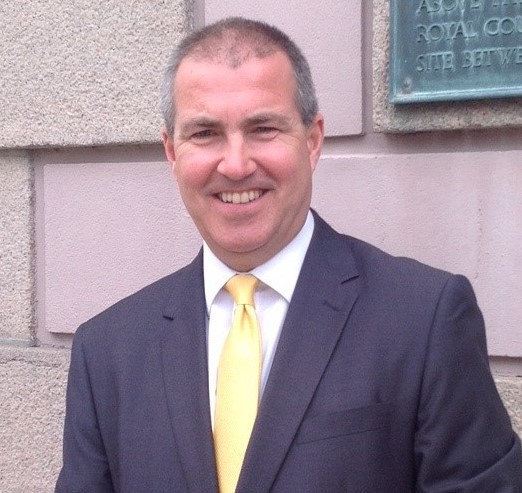


Jersey's key legal standards body has backed calls to regulate estate agents, with a licensing scheme, mandatory training and property ombudsman among their ideas for making the trade safer for buyers, sellers and renters.
Law Society CEO Neville Benbow and Advocate Christopher Philpott, who heads up the Society’s Conveyancing sub-committee, both voiced their strong support for such regulation in a hearing with the Economic and International Affairs Scrutiny Panel on Monday.
Currently, Jersey estate agents do not have to belong to any approved professional body, hold any specific qualifications or follow a code of conduct.
“The stark truth is that only 15 estate agents in Jersey are members of the Jersey Estate Agents Association, and only those JEAA members are bound by the Code of Conduct laid out by the property market, the national association of estate agents and the property ombudsman scheme,” Mr Benbow noted.
“The issue is that there are around 50 estate agents in Jersey, so 35 or 70% of the market are not signing up to standards. They are not standing up to their own trading association and frankly unless they’ve been voluntarily subscribed to an association and follow principles of best conduct and practice then there is a need for this to be addressed in a formal way hence regulation.”

Pictured: Neville Benbow, the CEO of the Law Society of Jersey.
Advocate Philpott said there is a “general consensus” - not only amongst lawyers but also among their clients, whether they are buyers or sellers - that estate agents need to be regulated.
In addition to introducing minimum standards on how estate agents should conduct themselves during transactions to address “mischief”, the pair argued for proper qualifications and training for anybody employed within the sector. Mr Benbow noted that currently anybody can set up as an estate agent and value a property.
They also suggested a licensing scheme under which estate agents would have to pay an annual fee to have a licence to trade. Those funds, Advocate Philpott argued, could be used to fund a property ombudsman that would consider complaints.

Pictured: Messrs Benbow and Philpott suggested a licensing scheme for estate agents.
If the scheme is adopted, estate agents would risk having licence suspended if they breach the code of conduct, which Advocate Philpott said would be a “significant incentive” for people to comply with best practice.
Mr Benbow also argued it would be proportionate to require all Estate Agents to join their trade association, the JEAA, and sign up to the codes of conduct, including the code of practice for residential estate agencies in the Channel Islands.
“That is not a draconian step and there shouldn’t be a high cost element of regulation,” he said.
He argued that if the “fairly light touch” approach works, there might not be a need for “more robust regulatory standards” to be introduced.
“What we are after here is best practice being introduced and to stop any potential for bad practices to become part of the matter,” he explained. “Our concern is the only 30% of EA are members of their own association.”
He later added: “If 70% haven’t signed up to their local trade association, that gives to me an indication that they are not very keen to be told what they can and can’t do and they prefer to trade on their own without regulation.”
Mr Benbow suggested membership should not be automatic, but instead be subject to a review by the trade association, which would ensure, among other things, that estate agents have appropriate insurance.

Pictured: Mr Benbow said he believed it was "appropriate and proportionate" to introduce professional standards for estate agents.
Discussing whether regulation would be affordable, Mr Benbow said the value of property “passing through the hands of these 50 estate agents is very, very substantial”, reminding the Scrutiny panel that in 2020, the value of flying freehold property transacted exceeded £1bn for the first time, while £31.8m was paid out in stamp duty.
Advocate Philpott agreed that the sector was so significant it warrants its own regulation and its own code of conduct, “over and above the usual Consumer Protection legislation that we have in the island.”
“Whilst regulation doesn’t always come cheaply, it is a price that has to be paid and we believe that, as a minimum, every estate agent being a member of the EAA, the Trade Association and being regulated by signing up at least to the property ombudsman scheme is an appropriate way forward,” Mr Benbow said. “It’s quite proportionate to the risks that are there. At the end of the day, the buyers and sellers, the people of Jersey, are the ones whose interests must be best protected.
“We want professional standards in Jersey in all walks of life, we have them in the legal profession, they have them in the accountancy sector and we believe that it is appropriate and proportionate for that to now be extended to the estate agents world particularly given the value of the sales and the property market in Jersey at the current time.”
Comments
Comments on this story express the views of the commentator only, not Bailiwick Publishing. We are unable to guarantee the accuracy of any of those comments.